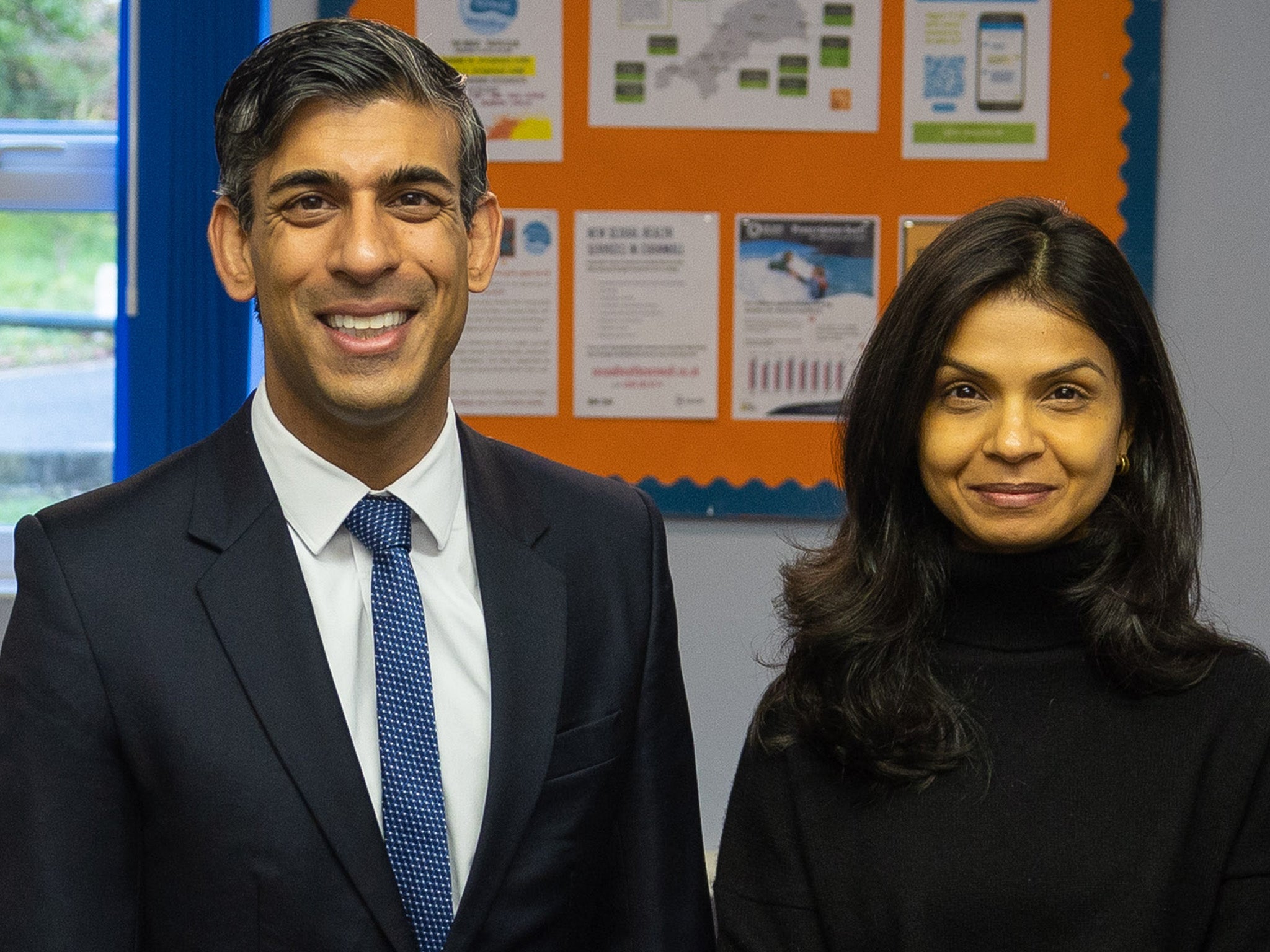Rishi Sunak’s standards investigation: what happens next?
The PM’s answers seem to have been incomplete, if not evasive, says Sean O’Grady


Rishi Sunak is under investigation by the parliamentary standards regulator over a possible failure to declare an interest; Daniel Greenberg, the parliamentary commissioner for standards, opened the inquiry under rules demanding MPs are “open and frank” in their declarations. This latest embarrassment comes after the prime minister published his tax returns, which revealed the low rate he paid on his investments, and the fixed penalty notice he received some weeks ago for not wearing a seatbelt while travelling in a car. Before that was the major scandal, revealed by The Independent, about the non-dom tax status enjoyed by his wife, Akshata Murty, and family, and his green card to work in the US. News of the standards committee probe also derailed what turned out to be a fairly disastrous policy launch to encourage children to learn more maths.
What did Sunak do wrong?
He failed to tell a Commons committee about a conflict of interest, even when invited to do so; according to Downing Street, the issue relates to shares held by Ms Murty in Koru Kids – an agency that will benefit from government plans to incentivise people to become childminders.
Mr Sunak was being questioned by MPs about why the key Budget policy favoured private childcare firms by offering twice the sign-up incentive. (Junior education minister Claire Coutinho later explained to the Commons that the government subsidises Ofsted for the cost of registering childminders, so the extra incentive to private agencies “is just simply to balance that out”.)
On the face of it, he thus seems to have been in clear breach of paragraph six of the code of conduct which requires MPs to make such declarations during any parliamentary proceedings they’re engaged in, including offering evidence to committees. It states: “Members must always be open and frank in declaring any relevant interest in any proceeding of the House or its committees, and in any communications with ministers, members, public officials or public office holders.” A “relevant interest” includes “indirect financial interests, such as the financial interests of a spouse or partner”.
The rule in paragraph six, and the general injunctions in the Nolan principles on conduct in public life, mean all MPs should err on the side of caution in such cases. Instead, when Sunak was asked by another MP if there was anything he wanted to declare, he replied: “No, all of my disclosures are declared in the normal way.”
This rather unspecific answer at least appears to be incomplete, if not evasive, and is uncomfortably reminiscent of Boris Johnson’s style of government.
What is Sunak’s defence?
He later wrote to the committee acknowledging the shares held by his wife, but this may not be good enough; if he had declared the interest while sitting in front of the Commons liaison committee, they would have had the immediate opportunity to probe him on the conflict. Sending a note in later is no substitute for scrutiny.
He can also plead that he recorded the interest in the ministerial register, but this has been in arrears for some time (May 2022) and is not available to MPs or the public on a timely basis, and thus lacks transparency.
His final line of defence might be that it is implausible that such fabulously wealthy people as himself or Ms Murty would be swayed over policy matters by such relatively trivial sums as a tax break worth at most a few thousand pounds to Koru Kids.
What will happen now?
The commissioner and the standards committee will consider the evidence. The potential problem for Mr Sunak is that, uniquely, the standards committee also comprises members of the public and they tend to take an even dimmer view of such breaches than other MPs. He can appeal any judgement made, and it’s up to the wider Commons, where he enjoys a safe majority, to endorse or reject it. In an unlikely and truly worst-case scenario, Mr Sunak would have such a heavy sanction that a by-election petition for his seat would be opened up, but an apology is more likely to be the recommended sanction.
How does this compare with the other parliamentary inquiry into Boris Johnson?
It’s not as serious. Lying to parliament is a degree of magnitude worse than failing to declare an interest in good time. That said, the fact that Mr Sunak did appear evasive in his answer to the liaison committee weighs against him. In any case, to have not one but two British prime ministers being simultaneously investigated is an unwelcome record.
Will this damage Sunak’s approval ratings?
He is especially vulnerable to ethics accusations because he made the bold promise to lead a government with “integrity, professionalism and accountability at every level”.
It will be a disappointment to him if things turn out badly, because his personal ratings have recently shown a modest improvement. He is an asset to his party in the sense that his own popularity outstrips the presently dismal showing of the Conservatives in general. The standards committee inquiry and likely minor reprimand are not going to destroy his reputation for competence; but neither will they be adornments. This odd story about his wife’s business adds to the sense that even Mr Sunak can’t get things right and that the Conservative government is not in control of events.






Join our commenting forum
Join thought-provoking conversations, follow other Independent readers and see their replies
Comments